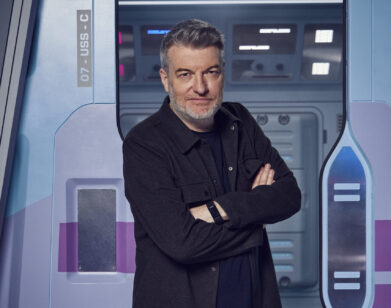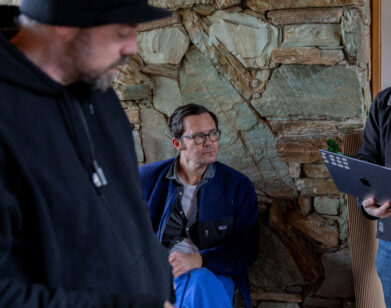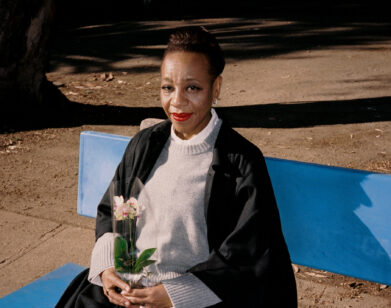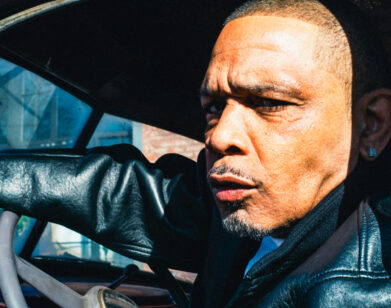Gabriel LaBelle on the Intricacies of Becoming Steven Spielberg
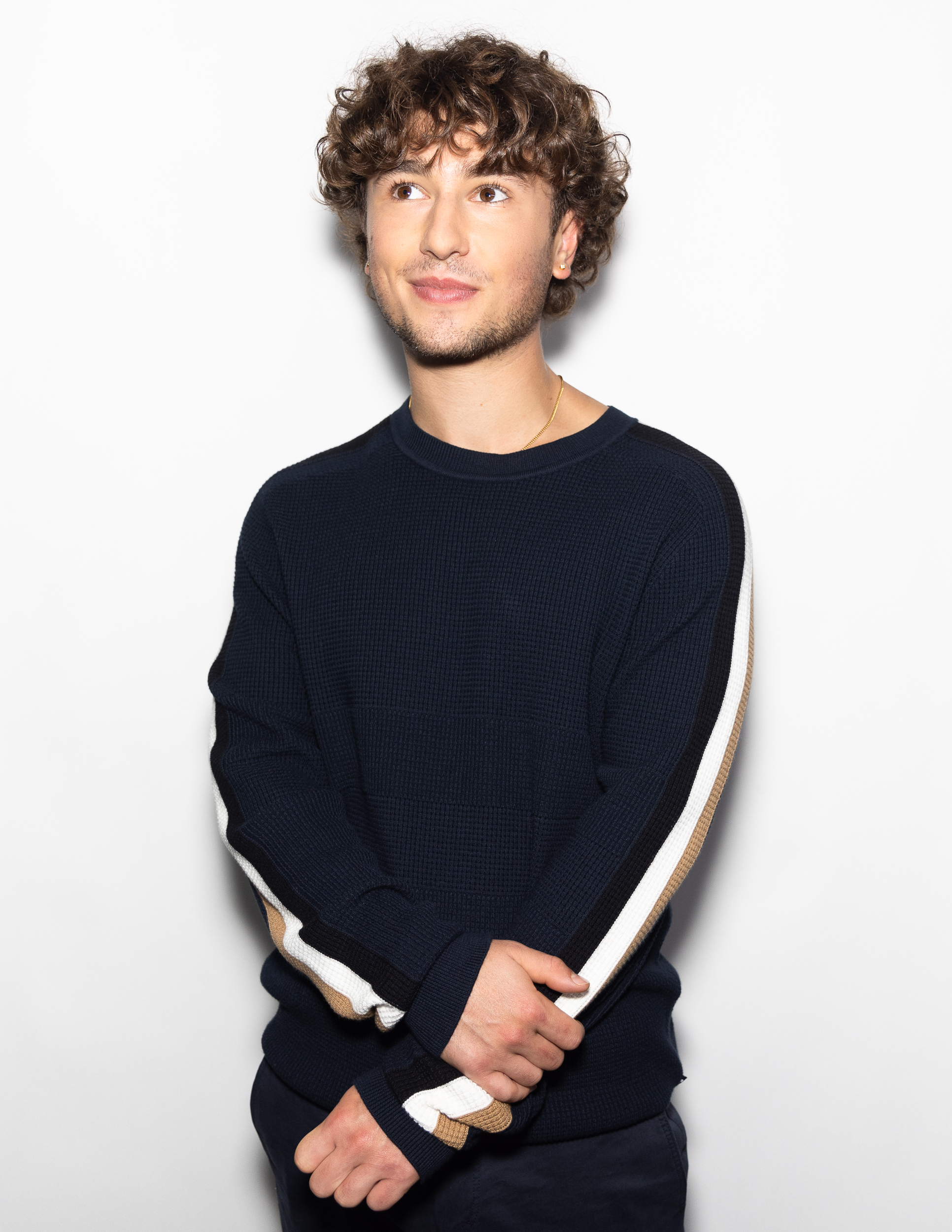
Two years ago, if you told Gabriel LaBelle, the star of Steven Spielberg’s new semi-autobiographical film The Fabelmans, that he would be the lead character in a movie that received unbelievable amounts of critical success, and that he himself would be poised to contend for a spot as a Best Actor nominee at the Oscars, he would have told you to stop joking and let him practice for his acting school audition. Even now, LaBelle, whose tempered and confident demeanor projects the aura of a seasoned actor and veteran of the press circuit, still can’t believe how far he’s come in such a short period of time.
LaBelle grew up performing—he’d go to acting camps in the summers and take courses after school in the spring—but acting didn’t emerge as his preferred vocation until his junior year of high school, when he realized he wanted to study it in a collegiate environment because, according to him, it was simply, “what I love to do.” Then, on the precipice of beginning his journey at Concordia University in Montreal, COVID-19 shut everything down and LaBelle was relegated to studying his craft on his own, which meant watching movies and old episodes of Inside the Actors Studio. Finally, in March 2021, when COVID restrictions and regulations began to soften, LaBelle sent an audition for an untitled film to Amblin, Steven Spielberg’s production company. Then came a callback, and then another one, this time with Spielberg himself. Just like that, LaBelle beat out 2,000 other applicants to became Sammy Fabelman, a young man discovering his passion for filmmaking while watching his parents marriage unravel. On the heels of the film’s five Golden Globe nominations, LaBelle sat down with us to discuss this daunting audition process, the intricacies of working with, and becoming, Steven Spielberg, and how he’s learned to own the screen.
———
JACKSON WALD: How are you feeling now that the movie is about to be released?
GABRIEL LABELLE: I’m feeling confident. Toronto [International Film Festival] was the biggest moment. I hadn’t seen it in its entirety yet, and I was telling my parents, “You can’t talk to me about [the film]. I have to get into a state of neutrality.” When I was watching the screening, I was clutching my mom’s hand.
WALD: What was it like seeing yourself on a big screen for the first time?
LABELLE: Making the movie I was so existentially self-deprecating, that when I watched on screen I was like, “Oh, okay. I’m not gonna die.” And [Steven Spielberg’s] writing is so clear in terms of what our characters have to do, that while we were making it I felt like my job was to show up and not to mess up. I didn’t feel any ownership over it, so [at TIFF] I could really watch it as a movie and separate myself from it.
WALD: Do you feel more ownership now that you’ve seen it a couple of times?
LABELLE: I do and I don’t. I had to get used to people coming up to me and complimenting the movie, saying, “Oh, it was so good.” My instinct was to be like, “I know right?” It took me a bit of going like, “I am in that, and I do have more screen time than other people.” But it is still Steven’s movie. I’m a part of it, but it’s still his.
WALD: How did you work with Spielberg throughout filming to make sure you were accurately embodying his character?
LABELLE: I wanted to understand the story he was trying to tell and to be able to see the movie the same way he did.What his relationships were like, what his experiences were like at that time, what his perspectives were, and how he changed throughout the movie. I got to see how he moved around, so I changed how I walked, and how I stood upright. They changed my hair and gave me contact lenses. I didn’t bother doing any impersonations of his voice or the way he speaks, because nobody knows how he would’ve spoken 60 years ago when he was a kid. I just wanted to understand what was going on in his head. I watched tons of 8-millimeter home footage of his family that he shot back then and got to learn how to use all those cameras from the ’50s and the ’60s, which was really interesting because I got to see from his perspective the amount of manual labor, and how time-consuming, making those movies was.
WALD: You can really feel it in the movie. There’s almost a layer of film separating him from everyone else in his world. There are a lot of scenes in the movie with long, extended dialogues with just you and another character, and you’re often silent, watching and playing off them. What were those scenes like to film?
LABELLE: Steven is one of the most intelligent and intuitive people I know—and probably on the entire planet—because [his movies] have been able to connect with millions of people across the globe. He knows what he feels, and what he wants other people to feel. He’s incredibly empathetic, and those were the moments when I was able to really feel what the other characters felt. For example, in the scene with Michelle [Williams], when Sammy distances himself from her when he discovers her secret, and he sees what she’s feeling, he immediately loves her again. Seeing how [other characters] feel is really frustrating for Sammy because he wants to vilify people but he can’t. He’s not an extrovert. He doesn’t talk much. He’s very much someone who sits and listens and observes.
WALD: Was there one scene in the movie that, either now, or while you were filming, really stood out to you?
LABELLE: There’s one scene where Sammy meets an icon of his, and you can just see it as one character meeting his hero, but it’s Steven, a legend, meeting a legend to him, and for the cinematic experience, I wanted to make that as real as possible. I remember being really exhausted by the end of it but also feeling really proud that I felt like I disappeared, and it was just Sammy in the room. But in the movie, every moment is significant. Every word is perfect. Every letter is there for a specific reason.
WALD: I read an article that Spielberg was crying often on set, and the production, in general, seemed like a real labor of love.
LABELLE: The first month of shooting was shooting the high school and boy scout scenes, so we were without Paul [Dano] or Michelle. The first day she came on set, with all of her makeup on, Steven stopped what he was doing, went up to her, and gave her a big hug. After the scene of Michelle and I in the bedroom he was welling up, and after the scene of me and Paul, near the end of the movie, he was crying. And also sometimes he was really quiet, and you could just tell to give him his space. But honestly, it was really great because not only did it reinforce the idea of why this film is so special to him, but also, making that movie was a big deal to everybody on set, and it united us.
WALD: As a young Jewish man in the film industry, was there something about the character of Sammy that felt natural and resonated with you?
LABELLE: I know what it is like to be the only Jewish kid in school, and I was never bullied like he was, but I know what that’s like. But I also know what it’s like to only want to do one thing. I’ve had very supportive people around me my whole life, but it’s just imagining: what would that be like if I was told not to do it? And what if I felt that I had to quit? I’m a child of divorce as well, and it happened when I was younger, and my parents have a great relationship. But Sammy is seeing his parents as people for the first time, and he’s judging them. And that’s really uncomfortable. I’ve done that. But I’m not so much older than Sammy. He’s going through a lot of firsts that I’m not so far ahead of. I’m fresh to what he’s going through and the realization that the world isn’t this easy place, that adults don’t have the answers, and that you really have to figure it out on your own.
WALD: You’re in New York City right now, a couple of weeks before the theatrical release of The Fabelmans. This is your first major movie, and the Hollywood Reporter just released their five potential Best Actor nominees for the Oscars and you’re one of them.
LABELLE: I am?
WALD: Yeah.
LABELLE: Jesus Christ.
WALD: What is it like getting all of this recognition all at once? Does it feel surreal? Do you feel prepared for it?
LABELLE: I have really good people around me. But it is surreal. Press can be overwhelming sometimes. I like the interviews, but photo shoots are weird. It’s very new, and it’s very celebratory for the people around me, but it is kind of weird to be treated differently because you do see it in their eyes a bit. But I’m excited. I feel that [this role] does give me confidence that I will get more opportunities, and I pinch myself every day for it. But this really is one of the most incredible opportunities someone could get, and I’m really grateful for that.

